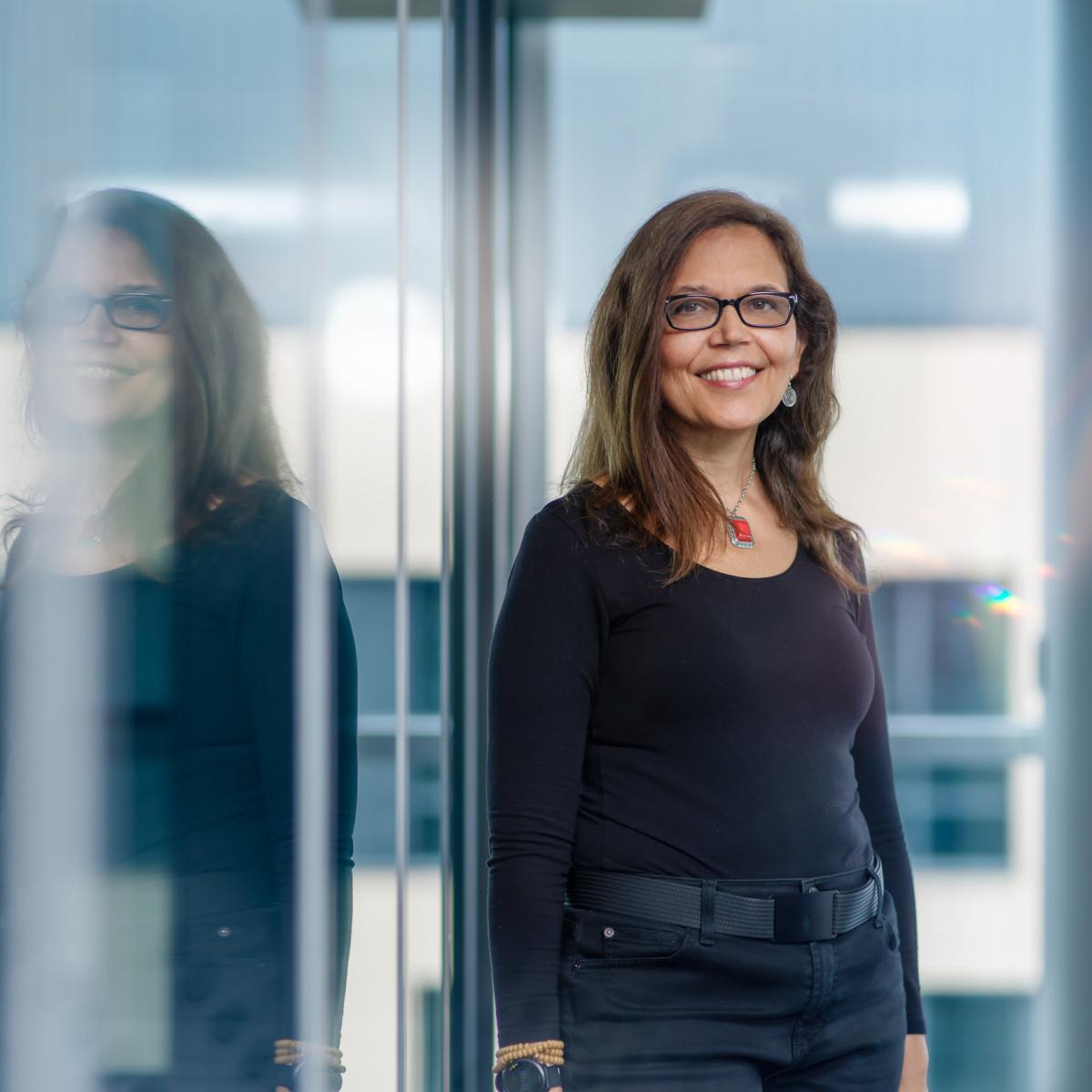Uncovering the neurocognitive system that supports the building blocks of linguistic meaning
Maria Piñango's lab seeks to uncover the neurocognitive system that supports the connection between word meaning structures and the conceptual and memory systems from which they emerge during both storage and real-time implementation. They conduct this research using various empirical and experimental methods, integrated in a mutually informing manner. These methods come from linguistics (e.g., introspection, fieldwork, and questionnaires), psychology (e.g., self-paced reading, lexical decision, and eye-tracking), cognitive neuroscience (e.g., focal brain lesions, EEG/ERP, and fMRI), and computational modeling (e.g., dynamic field theory).
Methods
Topics
Biography
Piñango received her PhD in Linguistics and Cognitive Science from Brandeis University in 1999. Her dissertation focused on the question of the neurocognitive basis of semantic vs. syntactic composition. She joined the Yale Linguistics Department that same year, and the Interdepartmental Neuroscience Program in 2000. Originally from Caracas, Venezuela, Piñango began investigating the neurocognition of language by studying the patterns of linguistic impairment resulting from brain focal lesions. When not teaching or doing research, she enjoys walkabouts with her husband and son.

